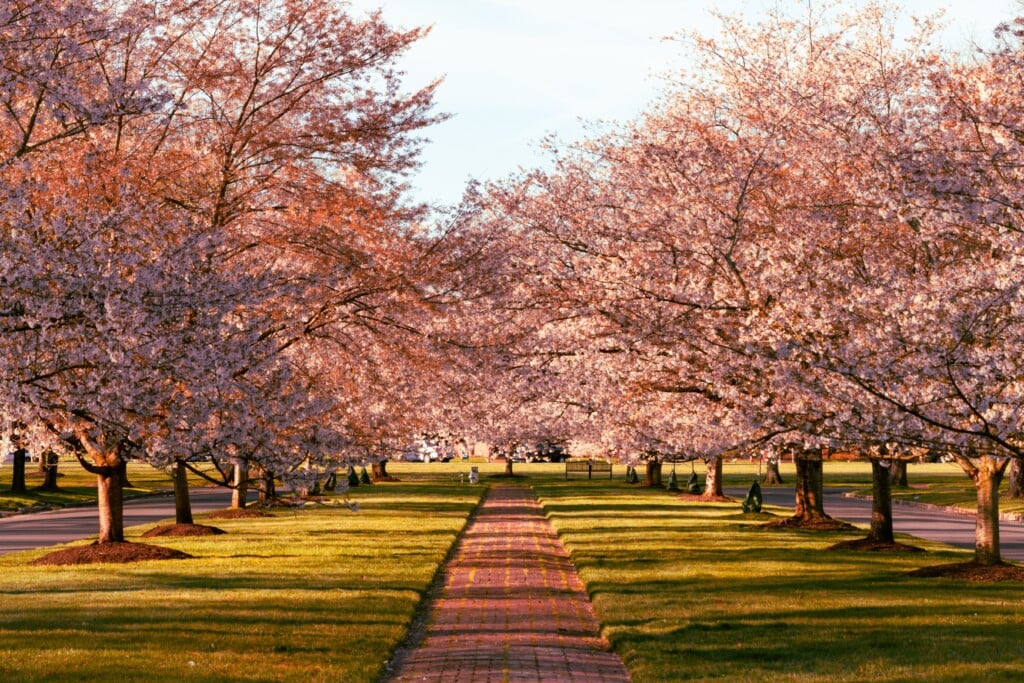Looking Back on Crimetown
The hit podcast’s co-creator shares the stories behind the sound bites.

Marc Smerling and Zac Stuart-Pontier with mob associate Ralph DeMasi (center). Photo courtesy of Marc Smerling
In 2016, Rhode Island’s most infamous personalities — from the back alleys of Federal Hill to the corner office at Providence City Hall — burst onto the national scene with the release of Crimetown. The hit podcast profiled the crime culture of American cities, and the first season focused on the one and only Providence. Nine years later, we caught up with co-creator Marc Smerling to see how those stories are faring today.
Of all the cities you could have chosen for the first season, why Providence?
I had a personal connection to the city. I knew something that most people in the country didn’t know — that Providence was the former home of the New England mob and was largely the base for the New England mob under Raymond Patriarca for years. I was married to a woman from Federal Hill. I met Buddy Cianci at the Biltmore hotel the year I graduated college, and I kept in touch with him.

Mayor Vincent “Buddy” Cianci Jr. Photo courtesy of Rhode Island Collection, Providence Public Library.
I’m born and raised in Rhode Island, so I grew up hearing about Buddy. How do the reactions to the podcast differ when it’s someone familiar versus hearing the history of crime in Rhode Island for the first time?
I think the goal was to make something where people could understand what Rhode Islanders understand about Buddy and Rhode Island. It was not made as some sort of action/mob/crime story. It was made as a tale of two cities in some ways. It’s hard not to fall in love with Buddy. He is bigger than life in a lot of ways, and his love for the city was undeniable. That’s why those people showed up for his funeral. That’s why he got the portrait in City Hall, even though he was a convicted felon. And that’s why I think that season of Crimetown is so popular. It’s because people fall in love with Buddy and they fall in love with a lot of the wise guys we interview.
It’s interesting relistening to it now as we just saw a convicted felon become president for his second term. Are there lessons here for what we’re currently seeing in politics?
Trump was elected the year the podcast came out. And we were talking about it a lot. I would hesitate to compare Buddy to Trump. I think Buddy is a guy who loved Providence, and yet he was also a guy with an outsized ego that needed to be fed all the time. He went outside the boundaries in a lot of ways and he got himself into trouble in a lot of ways, but ultimately he did raise the city. The city was in incredible despair when he first took office and he gave the city back its pride. And he did it for the right reasons. He didn’t become mayor, I think, because he was somebody who wanted to take bribes or do something corrupt. He became mayor because he loved the city. I think Donald Trump is a different animal together. I think that he is a guy who is really just all about being in power.
If you had tried to make this podcast ten, twenty years earlier, I wonder if people would have been so forthright.
We came to this story at the right time. I tried to get Ray Jr. to talk, and I had a couple of dinners with him, but he wouldn’t talk about it publicly. But a lot of the guys talked because nobody really wants to die without telling their story. A lot of these guys, they get into the Mafia because they come from very difficult backgrounds, and they don’t have a lot of choices. It’s a club, a family that they can belong to, that sort of outstrips their dysfunctional and sometimes abusive family. Raymond Patriarca was an expert at bringing these guys in and making them feel like they were part and parcel to his world. He was very paternal in how he recruited his people. They go through their lives, and then of course it’s not what they think it’s going to be. And they want to talk about it because a lot of them don’t want other people to do it the way they did it, and also because there was something about it they’re searching for. A lot of them have regrets and they’re just trying to figure that all out.
You had access to a lot of previously unpublished materials, particularly when it came to Buddy. Tell us how you found it.
After Buddy died, I heard there were multiple storage spaces that he had. He kept everything. So of course I wanted to ferret through all that stuff. I went to the Italo American Club, which you know well on Broadway, and I had lunch with [Brad Turchetta, Cianci’s nephew]. He said we’ll have it together in a couple weeks and come back. I went away, and I came back two months later, and I got to tell you — remember that scene at the end of Raiders of the Lost Ark when the guy’s pushing the ark and you pull back, and it’s this huge warehouse full of stacks of crates? Well, the bottom of this tower downtown was like that. The guy turned on the lights and they went down the way. It was unbelievable how much stuff. Zac [Stuart-Pontier, co-creator of Crimetown] and I went there for four days straight, and that’s where I got a lot of stuff. He just gave me the key.
Any plans for a Crimetown TV show?
We sold [the television rights] to FX Networks and then Disney bought FX, and that was the end of that. It’s available for anybody who wants to make a TV show out of it.
























